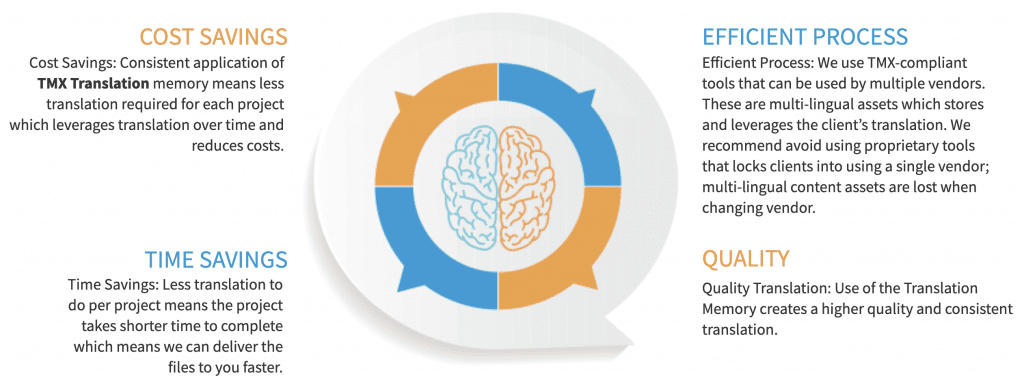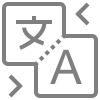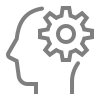
Translation Memory
Need a quote?
Contact with your Linquistic Translation Specialist Today!
Fast, Accurate & Affordable Translation Solutions!
Get In Touch
Singpore: +65 6829 7058
Malaysia: +60 3 2776 6812
Thailand: +66 98357 8074
info@veqta.com
Translation Memory Tool
What is Translation Memory?
The localization applications professional translators should use to manage their translation work is referred to as CAT Tools. These localization applications are not to be confused with Machine Translation (MT); CAT tools (cat tools)are computer aided translation tools used by human experienced translators to efficiently produce accurate and consistent translations through content leveraging by the use of Translation Memories (TM).
Translation Memory Software
A closer look at the how the translator work: Our translators use Computer-Aided Translation (CAT) tools such as Trados Translation Memory. CAT Tools are software applications that efficiently enables the translator to manage the translation creation. Cat tools translation is created by human translators to produce a more accurate and consistent translations at a fast pace.
Examples of a popular computer aided translation tool is the Trados translation software (SDL Trados Studio). As the translators work through the source file, the “matches” suggested by the translation memory (TM) can be either approved or replaced with new alternatives.
As a translation unit is updated it is stored by the translation memory and made available for future use and texts as well as within the current text. Segments of legacy translations are recycled from a Translation Memory which also helps to reduce costs. Segments can be entire paragraphs, whole sentences, or fragmented text strings such as headings or titles.
Segments in the target file without a “match” are translated by the translator and then automatically added to the Translation Memory which is a type of software localization database. Cat tools translation technical process that requires a localization engineer and professional translators to manage properly and a client with a large number of legacy translation may benefit from consulting with a localization strategy consultant.

Translation Memory
Translation Memories are databases that stores the source text with its corresponding translation in language pairs. This enables the ‘cat translator‘ to recycle repetitious text from previous translations, which means less translation will be required for future projects. It’s considered a standard best practice in the translation and localization industry to always create, apply and update Translation Memories to each project. Creating and using a Translation Memory provides a range of benefits:
Cost Savings
Application of Translation Memories (TM) can save a lot of money over time. The TMs contains the translation already completed that now can be leveraged against your new project. Less translation is required and therefore costs are reduced.
Quality Translation
Application of TMs creates higher quality and prevents inconsistent translation across projects with frequent updates as well as very large projects with multiple components and language pairs.
Time Savings
Following the TM process means less translation to do per project which means the projects can be delivered faster as they take a shorter time to complete.
Efficient process
The TMs can be converted into a format that can easily be shared with other vendors if needed to store and leverage the translation. We recommend avoiding using proprietary translation platforms sometimes offered by translation agencies that lock clients into using a single vendor to avoid the risk of legacy translation not being fully leveraged when changing vendor.
File Format Processing
We can prepare source files for the localization process which help avoid many problems and reduces cost during the translation and revision phase. If a file will be translated into four languages, it is easier to fix any problem identified in the source file rather than fix it later in four translated files. We extract the text from its source application to the CAT-tool in order to be translated to e.gtmxformat.
After the translation is done, we import the text back to its native application. This process ensures consistency and quality between source and target files. It reduces the time required to do the DTP process.
The process involved requires expertise knowledge since if the files are not correctly compiled this may result in corrupted code and segmentation of the files that are not fully leveraged, which will result in increased costs and inconsistencies.
VEQTA Translations effectively performs file preparation for multiple complex file formats.
Quality Translation Services
We perform a final Quality Assurance check before delivery to ensure we have complied with specific client instructions and checks to detect missing text, formatting, consistency issues, typos, observance to terminology and glossaries and correct as required. All components will be fully checked for accuracy and delivered to the client for review and approval.
Our quality checking spots errors to avoid mistakes in the delivery of the translated files. It reduces the time the client’s in-country reviewers need to spend. We perform a final Quality Assurance check before delivery to ensure we have complied with specific client instructions and checks to detect missing text, formatting, consistency issues, typos, observance to terminology and glossaries and correct as required.
All components will be fully checked for accuracy and delivered to the client for review and approval. Our quality checking spots errors to avoid mistakes in the delivery of the translated files. It reduces the time the client’s in-country reviewers need to spend on correcting or commenting on translations, layout problems or formatting errors. It also reduces the risk of the same mistake repeated over time.
METHODOLOGY OVERVIEW

Our translation process is a meticulous approach that involves skilled linguists and industry-specific experts to ensure that your content is accurately translated while preserving its original intent. We focus on linguistic excellence, cultural relevance, and precision to deliver high-quality translations. Our process adapts your content for global audiences, helping you effectively connect with diverse markets.

Our dedicated project management team is the backbone of our localization services. They coordinate every aspect of your project, from initiation to delivery, ensuring efficient workflows and timely results. With their expertise, you can rest assured that your localization project will be executed smoothly and in accordance with your requirements.

At VEQTA Translations, we manage your projects throughout their entire life cycle. From project initiation, planning, execution, and monitoring to closure, our team ensures that your localization needs are met at every stage. This comprehensive approach guarantees that your content is consistently handled and delivered with excellence.

Leveraging the Trados termbase and translation memory, we enhance the efficiency and accuracy of our translations. This technology allows us to store and reuse terminology and phrases across multiple projects, ensuring consistency and reducing costs. With translation memory, you can count on us to maintain precision and coherence in your content.

Our translation style guides play a crucial role in maintaining brand consistency, tone, and voice across multilingual content. We create customized style guides tailored to your specific needs and preferences. These guides serve as reference documents for our linguists, ensuring that your content remains on-brand and resonates with your target audience.

Translation Glossary & Termbase
We take care of creating and managing glossaries and term bases to guarantee precise and consistent translations. These resources are essential for ensuring that industry-specific terminology and key phrases are consistently used in your content. By maintaining a well-defined glossary and termbase, we enhance the accuracy and quality of your localized materials.
WHY VEQTA TRANSLATIONS?
VEQTA Translations offers turnkey translation and comprehensive localization solutions in over 200 languages, ensuring content adaptation for diverse audiences. Our team consists of native speakers skilled in various domains. Beyond mere text, we handle everything from website localization to video subtitling, ensuring brand consistency. Our certified linguists undergo rigorous vetting to guarantee top-quality results. Our multimedia adaptations and desktop publishing services maintain the original feel of your materials. Each project is overseen by a dedicated manager to ensure timely delivery and consistent quality. With VEQTA, you receive a streamlined, professional service catered to all your translation needs. We offer transparent and competitive pricing and fast turnaround times.
VEQTA is a member of both the ATA (American Translators Association) and CATI (Carolina Association of Translators and Interpreters). All of VEQTA’s translators hold professional certifications based on language and country, such as the ITBM certificate for Bahasa Malay. VEQTA employs only native-speaking translators who possess a Bachelor’s Degree and have passed rigorous language testing programs. Every translator has a minimum of 5 years of experience, while our editors boast experience ranging from 9 to 17 years.
All project-related communication is channeled through the assigned Project Manager. This ensures streamlined and efficient communication, as the Project Manager serves as a central point of contact. Our translators might not be located in your locale, may operate in different time zones, and given that projects often involve multiple languages, it’s most efficient to have all communications pass through the Project Manager. However, if there’s a pressing need for direct communication with a translator, such as discussing specifics in the target language, we can facilitate a video conference call to address your concerns.
After the project has been scoped, quoted, and handed off, the source material is prepared by the Project Manager and assigned to the translators. The translation undergoes a three-step process: Translation, Editing, and Proofreading, all performed by human translators and editors. If ordered, Desktop Publishing is carried out, followed by a final QA check before delivery. After delivery, the team remains available to address any additional requirements.
Yes, service customization is available and can be tailored based on your specific needs
Yes, at VEQTA, each client is assigned both an account manager and a project manager.
At VEQTA, we prioritize the confidentiality and security of our clients’ information above all else. To begin with, all of our staff and translators are bound by strict Non-Disclosure Agreements (NDAs) that protect your data and any associated intellectual property. Furthermore, we adhere to global data protection standards, including the European General Data Protection Regulation (GDPR), which ensures that personal data is handled with the utmost care and respect for individual rights. Any data shared with us is encrypted, stored securely, and is accessible only to those directly involved in the project. With these measures in place, our clients can be assured that their confidential information remains private and protected throughout our collaboration.
VEQTA’s quality assurance process is multifaceted and meticulously implemented throughout the entire project life cycle, catering to diverse project needs, be it straightforward transcription, multi-language tasks, or multimedia deliverables. Central to our translation excellence is the delineation of the process into three distinct phases: Translation, Editing, and Proofreading.
Each phase is managed by linguists who specialize in their respective areas.
Yet, our quality assurance doesn’t end there. We utilize software-enabled platforms to run QA reports on all finalized texts. For instance, these tools can detect if a single source term has received multiple translations. Any discrepancies are flagged and sent back to our editors for review. The Project Manager collaborates closely with VEQTA’s QA staff, ensuring that QA reports have been thoroughly conducted. They also ensure that all deliverables adhere to given guidelines, such as the reference observance, utilization of legacy Translation Memories, and the overall accuracy and completeness of the final products.
Yes, for our repeat clients, one of the advantages of partnering with VEQTA is the complimentary creation and maintenance of a Translation Memory. This memory retains the legacy translations we’ve completed for you previously. Utilizing the Translation Memory enables our editors to ensure consistent translations, simplify version control, and offer a range of quality assurance benefits. This service is provided at no additional cost as part of our translation offerings.
Yes, you can review some of our client case studies in the ‘Case Study’ section. We understand that, due to the intangible nature of translation services, it’s challenging for requestors to anticipate the outcomes. To address this concern, we’re pleased to offer a complimentary test translation using an extract from your text, approximately 300 words in length, for evaluation purposes.
FREQUENTLY ASKED QUESTIONS
Email us your source material for a word count assessment. If unavailable, send a source sample or an estimated word count for an estimated price. Firm quotes are based on the final source file. For large files (over 10 MB), use WeTransfer or Dropbox. If you send a PDF or image, let us know if you’ll provide the original editable source (e.g., InDesign, Doc, or PowerPoint) to ensure an accurate quote.
We offer a transparent pricing structure:
Translation: Based on the word or character count of the source.
The price for translation is between 0.08 USD to 0.16 USD per word.
Language Pair Rates: Each language pair has its own rate per source word or character.
Desktop Publishing (DTP): Priced per page or hour, depending on formatting needs. Most DTP projects are priced at around 25 to 30 USD per hour.
Voice-over: Charged by the minute for audio or video.
Email us the source material for a quick response. While you can call to discuss, the fastest way to get a quote is by emailing the project details and source/sample.
A translator can handle 2,500 to 3,500 words per day, and an editor can manage about 4,000 words per day. We’ll provide an estimated delivery time once we receive the source.
Yes, but page content varies widely. Quoting by word count is more accurate. For example, a page could have few words (like a PowerPoint slide) or many (like an insurance Terms & Conditions page in Calibri font size 5).
Only the Project Manager and translator/editor. All staff members sign Non-Disclosure Agreements (NDA). We can also sign an NDA with your company and comply with your data protection policies.
Payment can be made via bank transfer or credit card. Terms depend on the project scope and your company. Contact us for details.
We recommend waiting until the source files are final. If you need to start early, discuss the anticipated changes with us. Often, it’s faster to wait until the source is finalized. Sending a draft for a quote is a good way to get an estimate while you finalize the file.
We use CAT Tools and Translation Memories to handle source changes efficiently. We charge only for new words if feasible. For major updates with structural changes, we may switch to an hourly charge.
Translation & Localization Services in Over 200 Languages

Copyright © 2025 - VEQTA Translations Pte Ltd





